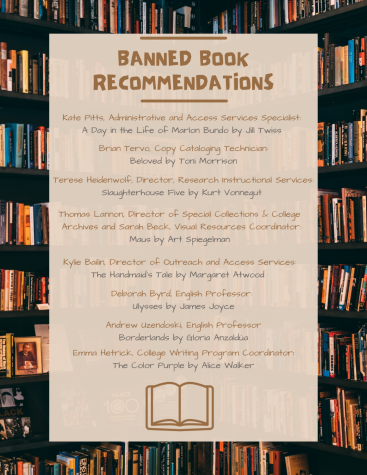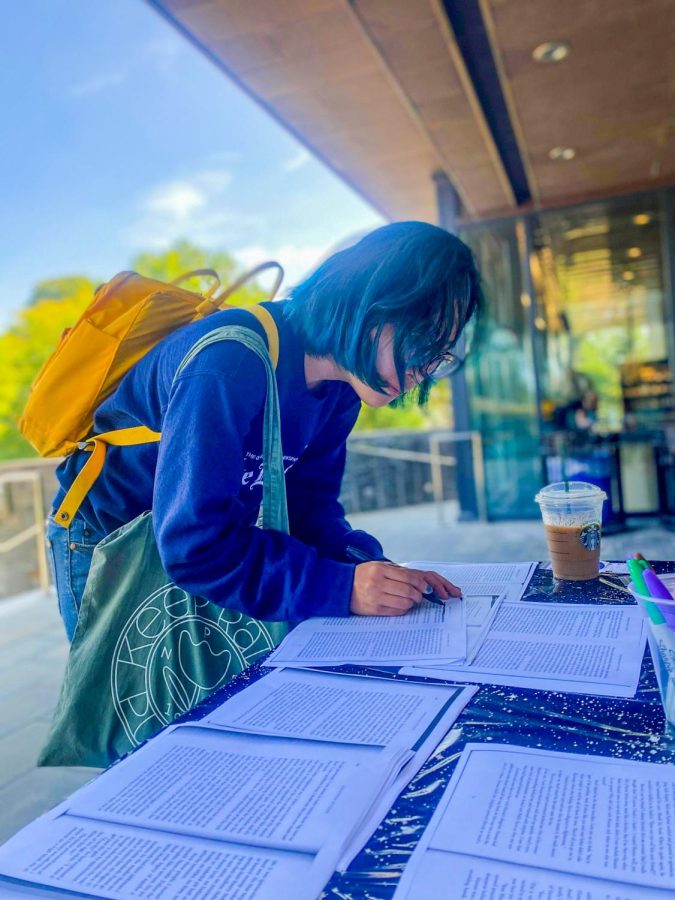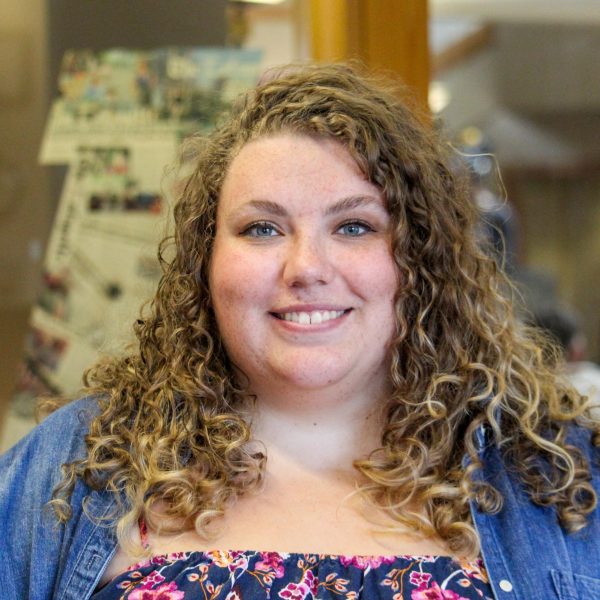In 2021 alone, more than 1,600 book titles were banned across the country, according to a report by literature and human rights group PEN America. This past week, Skillman Library celebrated the nationally recognized Banned Books Week by highlighting commonly challenged books through exhibits and activities for the student body.
All week long, Skillman featured an exhibit with the 10 books most frequently banned or challenged in this past year.
Originally, the plan for the exhibit was to feature the library staff’s favorite banned books. However, according to Kate Pitts, the library’s administrative and access service specialist, they ended up recognizing the books that made the most headlines this year.
“A lot of the favorite banned books are the classic books, which — nothing against those — are the ones that people will already have read and been exposed to,” Pitts said. “We decided instead to go with this year’s top ten banned books, which we just purchased when the list came out.”
Several of these books were new acquisitions for the library, and will now be on the shelves for students to check out.
The week’s activities kicked off on Tuesday with a social media scavenger hunt. A second scavenger hunt took place on Thursday.
By following the library on Instagram and Twitter, students could receive clues via social media posts about the location of a gift card for a specialty drink at Skillman Café. Each of the locations will be related to a banned book or feature a link to give students more information about banned books.
For example, one of the posts led participating students to “Gender Queer,” a graphic memoir by Maia Kobabe. With this clue, students were able to learn more information about the Comic Book Legal Defense Fund, a nonprofit dedicated to protecting the dissemination of comic books.
“I think that not many people know about graphic novels as a targeted subgenre when it comes to banned books,” Pitts said. Graphic novels are frequently banned and challenged, often because the images are classified as explicit or inappropriate.
On Wednesday, the library hosted a blackout poetry workshop during which students could obscure portions of pages from banned books with a permanent marker to make their own poetry. The English Department provided hot cider for the occasion.
“I thought it would be a really fun idea to allow people to use censorship in a way that actually had the opposite effect, and to turn banned books into their own form of expression,” Pitts explained. “I wanted to turn the tables on censorship and use it as a way of expression rather than repression.”
The week’s festivities end today with a giveaway of “All Boys Aren’t Blue,” a memoir by George M. Johnson that explores the struggles of a queer Black boy.
This book was chosen because of Johnson’s connection to Banned Books Week as honorary chair of the national celebration, and because the frequent challenging of their book reflects a larger trend: disproportionate challenges to books with LGBT content.
Half of the top banned books this year feature LGBT content. According to Tommy Lee, assistant director of Gender & Sexuality Programs, this has a significant negative impact on LGBT youth.
“LGBT people don’t have the opportunity to really learn about their identities from traditional ways, like storytelling and your parents telling you more about the oral history of your cultural identity,” Lee said. “Education and access to books [are] so critically important for young people to understand who they are.”
“When you ban access to that, and you don’t even allow for the opportunity to just read and help develop that identity, you’re really quite directly trying to erase the community, which is discriminatory, problematic, harmful and oppressive on so many levels,” Lee continued.
The Office of Intercultural Development provided the funds for 50 of the 100 “All Boys Aren’t Blue” copies being given out today.
Ana Ramirez Luhrs, Kirby librarian and head librarian for Justice, Equity, Diversity and Inclusion Initiatives, echoed Lee’s sentiment about the harmful effects of preventing people from seeing their experiences on the page.
“What happens when those books aren’t available because someone else is judging their morality?” Luhrs asked.
For Luhrs, an immigrant who was undocumented for many years, literature has been an important way for her to understand her own experiences.
“I can’t tell you how many times I have found the words I’ve been thinking in my brain for so long — words that I couldn’t put together but someone else so beautifully could write,” Luhrs said. “Bringing that understanding is such a gift.”
Those looking to learn more about banned books can visit the Banned Books Week website as well as the American Library Association website.























































































































